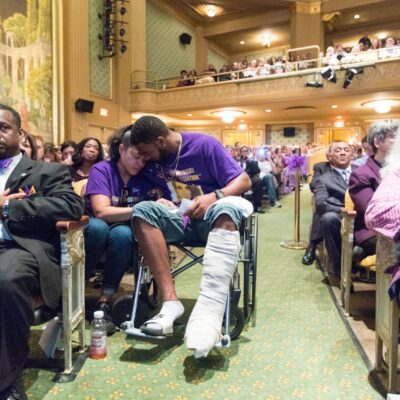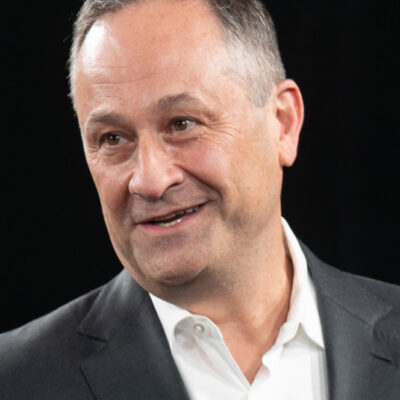Six months ago, four Albemarle supervisors upended the county’s transportation priorities with a late-night vote heard by few, but praised or cursed by every resident stuck at the Route 29 bottleneck near Polo Grounds Road. While the June 8 vote that rekindled the Western Bypass—a 6.2-mile road conceived decades ago, with cost estimates that differ by $200 million—came from local supervisors, exchanges between state transportation officials (see Jim Bacon’s feature, page 17) suggest that VDOT representatives and Secretary of Transportation Sean Connaughton waited for a politically advantageous time to revive a plan that looked dead in the water.
Until the previous week, the plan had languished due to a 3-3 gridlock on the board, and an impending election for Supervisors Ken Boyd and Lindsay Dorrier suggested the state might not get its way after November. “If we lose one vote of our majority, nothing will change, because we’ll still have 3-3,” Supervisor Rodney Thomas told C-VILLE in September. So, before the election—and before VDOT’s right-of-way acquisitions began to expire in 2012—Connaughton placed a final hour Hail Mary phone call to Scottsville Supervisor Dorrier, who changed his vote and broke a 3-3 tie.
For state transportation officials, Connaughton’s call largely signified the end of the Western Bypass battle in Albemarle County. The same can’t be said for the Board of Supervisors, which now has an entirely different battle on its hands.
The local vote that set the dormant Western Bypass in motion dealt what many residents and some supervisors consider to be the greatest blow to open government practices in Albemarle County in years. But in the case of Rivanna Supervisor Ken Boyd, who handily won reelection against Democratic challenger Cynthia Neff, the vote didn’t so much as nick his armor. It could be said that Boyd received a tremendous political boost from the road’s resurrection; Boyd might consider himself, as many voters doubtless did, a pragmatist who accomplished an unpopular task. Other voters who contested the process that brought the bypass back from the dead may still be scratching their heads.
The big flip-flop
What’s the greatest lesson learned from the November 8 election? Is it that voters care more about getting a bypass than they do about losing an opportunity to be heard? Or is it a question of “resolution” versus “best solutions,” and whether voters care more about getting past the bypass than getting it perfect?
When Supervisor Dorrier changed his vote only one week after voting with colleagues Ann Mallek and Dennis Rooker to uphold a bypass blockade, it required more than simply changing sides. Rather, it required three separate votes—including one to overturn a resolution proposed by Rooker to ensure Albemarle representatives on boards such as the Metropolitan Planning Organization (MPO) act according to previous board decisions. The previous week, Supervisor Rodney Thomas had asked the MPO Policy Board to remove language from the transportation improvement program barring the Western Bypass.
“If there is no previous position, the representative will have to make a discretionary decision as to the vote,” said Rooker. “But where there is an established position, it is very important that the Board makes it clear that people who serve on the committees are to follow the Board’s stated position.” The board also adopted a policy that said members would not bring up matters at a meeting’s end if they were not approved on the agenda at the beginning of the evening.
On June 8, Dorrier arrived eight minutes late to the supervisors’ meeting. Before his arrival, Boyd asked if matters not on the agenda would be discussed last, and Mallek said yes. More than four hours after the agenda had been approved without mention of the Western Bypass—and after a majority of the audience had gone home —Dorrier said he wanted to change his vote.
“At 11:35pm, the Board is willing to take a huge public interest item and vote to suspend its own rules, so that it can deal with that item without the public knowing about it…and without any public input?” asked Rooker. Boyd responded that the public had provided input during the previous meeting. The board proceeded to suspend its rule, rescind its previous vote, and cast another—three separate actions, all approved 4-2.
By many accounts—including those from individuals following the bypass—Boyd’s reelection was a road referendum.
“From what I understand, Ken’s opponent was very vociferous in her opposition to a bypass,” said Rex Hammond, president of the Lynchburg Chamber of Commerce. The Lynchburg chamber was a vocal supporter of the bypass, and Hammond traveled to Albemarle to tell supervisors that “U.S. 29 is our economic lifeline.”
If there are clear battle lines over the bypass, they involve commercial and property interests who want some resolution to the debate so they can move their plans forward, and environmental and planning interests who see the road as destructive and wasteful. In between, there are people like George Larie.
The president of Charlottesville Albemarle Transportation Coalition, Larie moved to Albemarle more than two decades ago and bought his house in the Colthurst Farm neighborhood in 1988. After he bought his home, VDOT began purchasing properties in Colthurst Farm as right-of-way for its planned bypass.
While Larie attended the June 8 supervisors meeting, he left before the Western Bypass vote.
“I learned about it the next day,” said Larie. “We attended the meeting earlier, and it was not even on the agenda.”
Larie said he has no evidence to support that any Albemarle supervisor changed Dorrier’s vote, although Boyd told C-VILLE that he spoke with the Scottsville supervisor about the bypass before June 1 and thought Dorrier supported the project then. Larie also said that he felt the road was pushed through by state officials, rather than local, and cited a prior VDOT study that concluded a Western Bypass that ends south of Ashwood Boulevard would still receive an “F” grade for its level of service.
Boyd told C-VILLE at his post-election party that he “didn’t want the Western Bypass to become the main issue, but it did become the main issue.” However, until Secretary Connaughton broached the bypass with supervisors Snow and Thomas in April, Boyd wasn’t officially a candidate.
“Nothing to do with my decision to run”
On April 4, Duane Snow and Rodney Thomas traveled to Richmond and met with Transportation Secretary Sean Connaughton, and he asked them about a bypass around Charlottesville. Boyd had raised the same question in an e-mail to Connaughton and VDOT Culpeper District Administrator James Utterback in February, according to documents obtained through CATCO’s FOIA request. However, after Connaughton met with Thomas and Snow, Utterback allegedly told VDOT Transportation Planner Marsha Fiol that Connaughton wanted the Western Bypass created as a “design-build” project, and put out to bid for $200 million by summer.
“Jim [Utterback] cautioned this this is very confidential,” wrote Fiol in an e-mail obtained by the Charlottesville Albemarle Transportation Coalition. (CATCO obtained multiple e-mails through a Freedom of Information Act Request.) On May 12, and after previously saying he wouldn’t run, Boyd announced his reelection bid.
While both Cynthia Neff and Ken Boyd told C-VILLE that the election was based on the bypass, Neff focused her criticism on Boyd’s February e-mail to Connaughton, which she saw as contrary to campaign materials that said Boyd opposed another bypass, through Keswick. Boyd told C-VILLE that he ran on his record, and to this day doesn’t believe the election was solely based on the bypass.
“That was obviously an important issue,” said Boyd. “But, in our ads in both radio and TV, we hardly ever mentioned the bypass.” However, Boyd says he did mention his Northern Terminus Task Force in a campaign ad. And, according to documents acquired in a FOIA request by CATCO, that’s where Boyd’s fellow supervisors let him have it.
On August 30, Boyd e-mailed task force members, who agreed to provide VDOT engineers with input on the bypass’ northern terminus, to schedule a press announcement for the following day. Within hours, Supervisor Mallek responded in an e-mail copied to Utterback and Rooker.
“VDOT is being used as a prop for a campaign event, and I think it is completely inappropriate,” she wrote. “The bypass project has a design committee which can be reinvigorated for this process.”
Rooker followed suit.
“Every school and neighborhood along the way has an interest in the design of the bypass,” he wrote. “This should not be a political tool, but a process that actually helps reduce the impacts of this project on the community, and it needs to be done in an organized way.” Boyd ultimately responded to both that he “never implied this was a board appointed committee.”
The task force’s work can be quantified in the Route 29 Bypass request for proposals; they were submitted as an addendum to the RFP. What can’t be quantified is whether Boyd’s task force (and its place in campaign materials) determined his election.
As for the role that the Western Bypass played in his decision to seek office again, Boyd is clear.
“The bypass had absolutely nothing to do with my decision to run again,” he told C-VILLE. “It was strictly a personal decision based on input from my family and supporters.” Many of whom support a Western Bypass, of course.
If the election was a Western Bypass referendum, then Boyd’s decisive victory could be seen as an affirmation of his role breaking the board’s gridlock. But if Boyd’s February e-mail and talks with Dorrier captured a vital vote for the Richmond GOP, then where does that leave the countless hours of local thought put into planning Places29? For that matter, what’s the point of all the ink spilled on this issue, or redrafting board rules to allow the public to better monitor the decision-making process? The next referendum may well be after the end of Boyd’s third term, when Albemarle drivers ride the new road for the first time.





